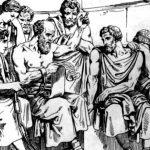
The Eight Intellectual Character Traits: intellectual humility, intellectual courage, intellectual empathy, autonomy, integrity, intellectual perseverance, confidence in reason, and fairmindedness. NOTE: All text below is from the book “The Miniature Guide to Critical Thinking Concepts and Tools (Thinker’s Guide Library)” by Richard Paul & Linda Elder. Intellectual Humility: Having a consciousness of the limits of one’s knowledge, including a sensitivity to circumstances in which one’s native egocentrism is likely to […] Read more »






